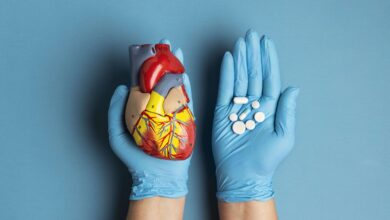Caffeine: Unveiling the Energizing Secrets of the World’s Favorite Stimulant

Welcome to the fascinating world of caffeine, the beloved and widely consumed stimulant found in various beverages and foods. Whether you start your day with a steaming cup of coffee, enjoy a refreshing soda in the afternoon, or savor a bar of chocolate for dessert, chances are you’ve encountered caffeine. But what exactly is caffeine, and how does it affect our bodies? In this comprehensive article, we’ll explore the ins and outs of caffeine, from its origins and chemical properties to its physiological and psychological effects. So grab your favorite caffeinated beverage and join us on this stimulating journey!
Caffeine: A Brief Overview
Caffeine is a naturally occurring compound belonging to the class of substances known as xanthines. It acts as a central nervous system stimulant, providing a temporary boost in energy and mental alertness. Caffeine is found in varying concentrations in the seeds, leaves, and fruits of certain plants, where it acts as a natural pesticide. While there are over 60 plant species that produce caffeine, the most widely recognized sources include coffee beans, tea leaves, cacao pods, and kola nuts.
The Chemistry Behind Caffeine
Caffeine, with the chemical formula C₈H₁₀N₄O₂, is classified as a methylxanthine compound. Structurally, it resembles adenine, one of the building blocks of DNA and RNA. This similarity allows caffeine to easily penetrate cell membranes and exert its stimulating effects. Additionally, caffeine is water-soluble and rapidly absorbed by the body after consumption.
How Does Caffeine Work?
Once consumed, caffeine acts as an adenosine receptor antagonist in the brain. Adenosine is a neurotransmitter that promotes sleepiness and relaxation by binding to its receptors. By blocking these receptors, caffeine prevents adenosine from exerting its sedative effects, leading to increased wakefulness and mental stimulation.
Furthermore, caffeine stimulates the release of adrenaline, a hormone that prepares the body for physical exertion or stress. This surge in adrenaline contributes to the “fight-or-flight” response, boosting heart rate and blood flow while providing a surge of energy.
The Effects of Caffeine on the Body
- Increased Energy and Alertness
Caffeine’s primary effect is an increase in energy levels and mental alertness. By blocking adenosine receptors, caffeine combats drowsiness and promotes wakefulness, allowing individuals to stay focused and attentive.
- Enhanced Physical Performance
Athletes often turn to caffeine as an ergogenic aid to improve their performance. Caffeine has been shown to increase endurance, reduce perceived exertion, and enhance muscle contraction, making it a popular choice among athletes.
- Metabolism Boost and Fat Burning
Caffeine has thermogenic properties, meaning it increases the body’s metabolic rate and promotes fat oxidation. This effect has led to the inclusion of caffeine in numerous weight loss and dietary supplements.
- Mood Elevation and Improved Cognitive Function
Caffeine is known to enhance mood, increase motivation, and improve cognitive function. It stimulates the release of dopamine, a neurotransmitter associated with pleasure and reward, leading to feelings of well-being and happiness.
Frequently Asked Questions (FAQs)
FAQ 1: Is caffeine addictive?
While caffeine is not considered physically addictive, it can lead to psychological dependence. Regular consumption of caffeine can result in tolerance, requiring higher doses to achieve
the desired effects. Abruptly stopping caffeine intake may cause withdrawal symptoms such as headaches, irritability, and fatigue.
FAQ 2: How much caffeine is safe to consume?
The recommended safe daily caffeine intake varies depending on factors such as age, overall health, and individual sensitivity. In general, consuming up to 400 milligrams (mg) of caffeine per day is considered safe for most healthy adults. However, it’s important to note that certain individuals, such as pregnant women or those with underlying health conditions, may need to limit their caffeine intake or avoid it altogether.
FAQ 3: Does caffeine affect sleep?
Yes, caffeine can interfere with sleep, especially when consumed in large amounts or close to bedtime. It is advisable to limit or avoid caffeine intake several hours before sleep to ensure a good night’s rest. Sensitivity to caffeine varies among individuals, so it’s important to listen to your body and adjust your consumption accordingly.
FAQ 4: Are there any health benefits associated with caffeine?
Yes, moderate caffeine consumption has been linked to several potential health benefits. Research suggests that caffeine may improve cognitive function, boost mood, and enhance physical performance. Additionally, caffeine has been associated with a lower risk of certain conditions, such as Parkinson’s disease, liver disease, and certain types of cancer. However, more studies are needed to fully understand the extent of these benefits.
FAQ 5: Are there any risks or side effects of consuming caffeine?
While moderate caffeine consumption is generally safe for most people, excessive intake or sensitivity to caffeine can lead to various side effects. These may include jitteriness, increased heart rate, digestive issues, anxiety, and difficulty sleeping. It’s important to be mindful of your caffeine intake and listen to your body’s signals to avoid any adverse effects.
FAQ 6: Can caffeine interact with medications?
Yes, caffeine can interact with certain medications. It may enhance or interfere with the effects of certain drugs, including those for blood pressure, heart conditions, and psychiatric disorders. If you are taking medications, it’s essential to consult with your healthcare provider regarding any potential interactions with caffeine.
Caffeine, the world’s favorite stimulant, has a long and storied history. From its origins in ancient cultures to its widespread consumption in the modern world, caffeine has captivated our taste buds and provided a boost of energy when we need it most. Understanding the science behind caffeine and its effects on the body empowers us to make informed choices about our consumption.
Remember to enjoy caffeine in moderation and be mindful of your individual tolerance. Whether you savor a cup of coffee, sip on a cup of tea, or indulge in a piece of chocolate, embrace the energizing secrets of caffeine while respecting your body’s needs. Cheers to the invigorating power of caffeine!




Your point of view caught my eye and was very interesting. Thanks. I have a question for you.